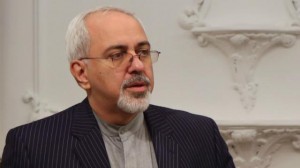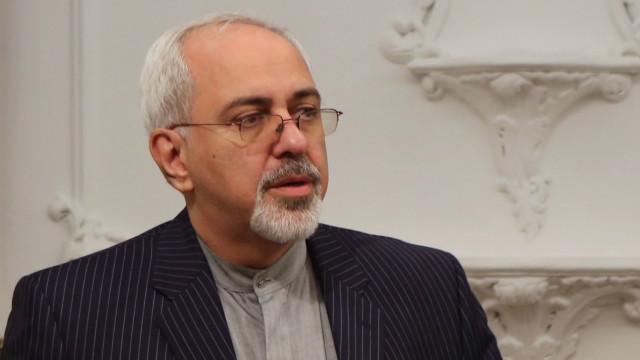 It was a small step for Iranian Foreign Minister Mohammad Javad Zarif, but it could be a giant leap for Internet users in the Islamic republic, who have long fought against online censorship.
It was a small step for Iranian Foreign Minister Mohammad Javad Zarif, but it could be a giant leap for Internet users in the Islamic republic, who have long fought against online censorship.The U.S.-educated Zarif acknowledged on August 14 that he and his family maintain a fan page on Facebook, the social-media site that the Iranian government blocks. "Following the inquiry of [some of you], this page is being updated by me and my children," wrote Zarif, who has more than 65,000 Facebook "fans."
The post was quickly liked by more than 5,000 Facebook users, some of whom couldn't help asking Zarif what antifiltering software he was using to access the site.
"Aren't you the minister of the same establishment that has filtered Facebook? I don't get this constant contradiction between the comments and actions of Iranian officials," wrote one user, who also welcomed Zarif to "the world of Facebook." (Zarif hasn't answered.)
Zarif's public acknowledgement that he was running his own page surprised many, according to Iranian social-media activist Vahid Online, who notes that even Iranian Supreme Leader Ayatollah Ali Khamenei's Facebook page "has never publicly acknowledged that the page is maintained by its office."
Online notes that "Zarif is the first senior Iranian official to type with his own fingers and write that he is using Facebook, a site that has been branded as a tool of enemies and mentioned in trials of opposition members."
Popular, And Banned
Facebook is the most popular social-media site in Iran and just one of the thousands of websites the government filters, or blocks access to.
Many Iranians access it via a variety of antifiltering tools. Iranian authorities have warned that being a member of a social-media site is not a crime, but bypassing state filtering can be considered criminal. Some officials, and state-controlled television, have labeled social-media platforms "Zionist tools" of Iran's enemies and foreign intelligence services.
Despite that, many officials, including Khamenei, have a presence on sites like Facebook and Twitter, albeit without claims of personal participation. During the summer's presidential campaign, all the main candidates tweeted, maintained Facebook pages, and posted pictures on Instagram. The social-media accounts were said to be maintained by the candidates' supporters.
Mahmood Enayat, who leads the U.K.-based Small Media Foundation, says Iranian authorities have realized the power of social media. "When the highest authority in the country has a presence on Facebook, Twitter, Instagram, Tumblr, and other sites, I don't think anyone would object to Zarif and ask him why he has an official Facebook account," Enayat says.
"The other issue is that social media can't be ignored and officials can't dismiss them as Western tools and say that they'll stay away from them. We saw it during the presidential election, when most of the candidates were present on social media."
Signs Of Easing Restrictions?
Zarif, who joined Facebook in February 2009, had previously not updated his page. He began posting and adding new photos a few days before his confirmation hearing for the post of foreign minister in July. His updates were quickly "liked" by tens of thousands of fans.
Many people thanked Zarif for connecting with them through Facebook and said other Iranian officials should follow his lead. Many of the comments on the page made reference to pledges new Iranian President Hassan Rohani has made, including improving international diplomatic ties and forging a moderate path domestically.
One man wrote, "I hope you can remove the sanctions." Another wrote: "I hope the good feeling people have about you won't be destroyed. I hope you read all these messages that are full of hope and demands for change."
Since Rohani's election in June, Iranian media has speculated that the new government might ease some online restrictions. During his campaign, Rohani criticized state Internet censorship, saying that it widened the gap between the people and the state.
One online activist in Tehran who did not want to be named told RFE/RL that Zarif's presence on Facebook had "created lots of hope" that the site might be unblocked.
Enayat isn't as optimistic. "I think the likelihood that the Islamic republic will unblock Facebook is very slim. [If] more political figures and organizations will join Facebook, the [negative attitude] toward Facebook and Twitter will become more and more meaningless," he says.
"But we have to wait and see whether that would lead to the removal of the filtering."
By Radio Free Europe/Radio Liberty
The Iran Project is not responsible for the content of quoted articles.











